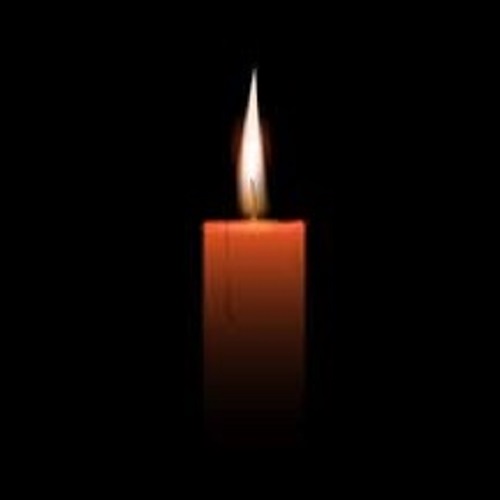Sergey Kobylash Obituary, Death Window Fall, Social Media Heist – The sudden death of Lieutenant General Sergey Ivanovich Kobylash, 60, the former head of the Russian Air Force, has sent shockwaves through Russia’s military leadership and raised questions about the future of the nation’s armed forces amidst ongoing conflicts. The respected commander died following an alleged fall from a window in Moscow under circumstances that remain unclear. The incident occurred mere days after a significant military setback for Kobylash’s command, which further complicated the political and military turbulence surrounding his death.
While official reports have not confirmed the precise cause of the fall, speculation continues to grow. Some insiders suggest that the event may not have been an accident, linking it to the mounting pressures and internal discord within the Russian military leadership. Others have raised concerns that it may have been a tragic result of mounting stress, amid growing military and geopolitical challenges. No official suicide note has been found, but the ongoing scrutiny and investigations into Kobylash’s conduct suggest that the pressure on the veteran officer may have been immense.
Born on April 1, 1965, in Odessa, then part of the Soviet Union, Sergey Kobylash’s career spanned several decades, earning him recognition and distinction in the Russian military. A career officer, Kobylash quickly rose through the ranks due to his technical expertise, strategic intelligence, and loyalty to the Kremlin. Over the years, he earned a reputation as a brilliant tactician, particularly in the realm of air power and long-range aviation.
Kobylash served in pivotal command roles throughout his career. He was an integral figure in Russia’s military operations during the First and Second Chechen Wars, the 2008 Russo-Georgian War, and the ongoing war in Ukraine. His expertise in air warfare was crucial to Russia’s military strategy, and he was instrumental in overseeing the Russian strategic bomber fleet during some of the most turbulent years of the country’s military history.
In 2016, he was appointed Commander of the Russian Long-Range Aviation Command, and in 2024, he was promoted to Commander of the Russian Air Force. However, Kobylash’s final year in command was fraught with growing international scrutiny and internal military challenges, which began to erode his once-imposing reputation.
Kobylash’s leadership was significantly affected by the March 2024 warrant for his arrest by the International Criminal Court (ICC). The ICC accused him of war crimes and crimes against humanity, specifically relating to missile strikes on Ukrainian civilian infrastructure between October 2022 and March 2023. The most significant allegation was tied to the July 8, 2024, bombing of Kyiv’s Okhmatdyt Children’s Hospital, an airstrike that caused widespread civilian casualties and sparked outrage among international observers.
These allegations cast a dark shadow over his tenure and placed him at the heart of an international controversy, while his effectiveness as a commander continued to be questioned. As the war in Ukraine escalated and Russian military forces were stretched thin, Operation “Web” — a precision drone strike by Ukraine’s Security Service (SBU) — destroyed several of Russia’s long-range bombers under his direct command. This operation, which dealt a significant blow to Russia’s air capabilities, has been described as one of the most significant military setbacks during Kobylash’s career.
Sources within the Russian military suggest that the mounting pressure from both internal and external forces likely contributed to Kobylash’s decline. Insider reports indicate that morale among Russian troops had taken a hit due to increasing losses and failed military operations, and Kobylash, as the leader of Russia’s air force, bore much of the blame.
Kobylash’s death leaves behind a complex legacy. On one hand, he is remembered by his colleagues and military subordinates as a dedicated and disciplined officer who led with precision and intensity. Many in the Russian Air Force describe him as a man who demanded excellence, often pushing his team to achieve higher standards. His supporters view him as a hero who served with unwavering loyalty to Russia, despite the criticism and political fallout in recent years.
On the other hand, Kobylash’s reputation has been tarnished by accusations of war crimes, particularly related to his role in the bombing campaigns during the Ukraine conflict. His actions, which many view as emblematic of Russia’s aggressive military strategies, have drawn widespread condemnation, both from Ukraine and the international community.
In the wake of his death, there are questions about the stability of Russia’s military command structure. With senior commanders like Kobylash gone, Russia faces an uncertain future. His passing highlights the fragility of the country’s leadership during this tumultuous period and raises critical questions about morale, accountability, and the ongoing conflict.
A Family in Mourning: Privacy Requested
Kobylash is survived by his wife, Natalia Kobylash, and their two children, Ivan and Daria. The family, understandably devastated by the loss, has requested privacy during this difficult time, particularly amid the global attention surrounding the circumstances of his death.
While the Russian authorities have launched an internal inquiry into the incident, details remain scarce. For now, the family’s desire for privacy remains paramount as they navigate the grief that has been amplified by international scrutiny and political controversy.
Kobylash’s death will likely have significant implications for Russia’s military leadership, but it also underscores the broader struggles within the Kremlin’s command structure. As Russia continues its military operations in Ukraine, the loss of one of the country’s most senior and experienced officers raises questions about the long-term effectiveness of its military strategy.


